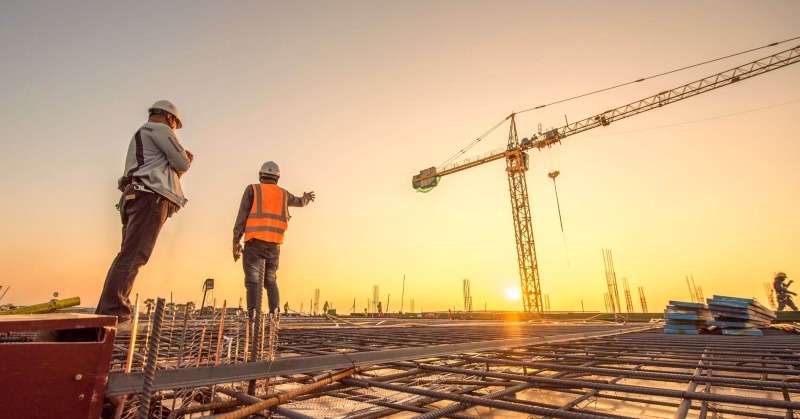Read In 5 Minutes
Construction Managers & Project Controls
Construction projects are highly structured endeavors, whether that’s building Canada’s largest LRT expansion project or a natural gas pipeline project. From design to planning, to scheduling and construction of the project itself, there are a lot of moving parts and people that must be precisely coordinated. Each phase and activity of a project are complicated enough by themselves but in congress with the entire project, the overall complexity grows exponentially. This puts pressure on the various members of the project team to work closely with others so that work not only gets done correctly, but it also gets done within budget and schedule. This is one clear reason why, for example, it’s important for construction managers to work closely with project controls. Before we dive into this, let’s first briefly explain the roles of construction management versus project controls.

What is Construction Management vs. Project Controls?
Although their roles are distinctly different, both construction managers and project controls have a common goal: in that they both are driven to deliver a project successfully, on budget, on time, safely, and with a happy customer.
Learn More About Construction Management
Construction Management
Construction management, first of all, is a fine-tuned system designed to facilitate planning, coordination and control of a the completion of the construction side of a project. Qualified construction managers provide day-to-day oversight from pre-construction through to execution, working with all parties to orchestrate the completion of deliverables according to drawings and contract deliverables. In the world of building a complex construction projects, a construction manager over-sees the big picture and fine-tunes the details to deliver a project’s construction on schedule and on budget.
A construction manager for example, will:
- Plan, organize, direct, control and evaluate a project from start to finish according to schedule, specifications and budget;
- Prepare and plan construction schedules and milestones, work timetables and monitor progress against established schedules;
- Communicate with clients and stakeholders regarding budget, progress reports, progress schedules etc.; and,
- Lead or interface with workers, teams and other construction professions on technical and contract details.
Project Controls
Project controls professionals, by contrast, are more focused on a project’s budget and schedule. They are, of course, highly interested in the successful completion of project deliverables, but they are more focused on the details of the numbers playing out in behind all that work that’s going on at the jobsite – the work that’s being coordinated by the construction managers. They act essentially as the project accountants, making sure that cash flow, resources, forecasts and progress are all lining up and playing out according to plan. While physically separate from the construction management team, project controls professionals focus on taking project information and translating that knowledge into schedules, budgets, and tools project teams can use.
A project controls manager for example, will:
- Ensure the project’s scope is adequately captured and reflected within the approved baseline schedule and budget;
- Compile and access the projects’ actual progress (schedule and cost) to leverage trends and forecast a realistic completion;
- Establish the reporting structure and customized reports, ensuring management and decision-makers remain informed; and,
- Identify risks and its impact on the projects’ schedule and budget, and drive these to the forefront for discussion and mitigation as necessary.
Successful Projects Are A Team Effort
I’m picking on just construction managers and project controls in this brief discussion because, even though they perform very different functions, they both have a common end goal of a successful project. They may not necessarily hang out with each other because one is a field guy whose day-to-day is entrenched with crews, safety, toolbox talks, equipment, materials and making sense of drawings – and the other is an office guy whose head is buried in budgets, schedules, change orders, risk, forecasts and progress measurements. Both are clearly fundamental for project success, so need to work as a team to achieve that goal. By encompassing the critical processes, people skills and tools needed to plan and execute on a project, project controls will feed the construction jobsite team with key real-time information so that construction managers can mitigate risk that may affect the cost and schedule of a project; meaning they can set and reset the course at any point in time during the life cycle of a project, making them essential for construction managers to be successful at their job.

Learn More
4castplus has been specifically designed to manage the heavy demands of construction projects. With powerful features and intelligent workflows, your teams will have greater visibility and control. Let 4castplus streamline the execution of your key projects and move your organization to the next level Contact us to learn more.
 Platform
Platform Solutions
Solutions Owners
Owners Contractors
Contractors Engineering/EPCM
Engineering/EPCM Professional Services
Professional Services Resources
Resources White Papers
White Papers Case Studies
Case Studies Blog
Blog Videos
Videos Frequently Asked Questions
Frequently Asked Questions Company
Company About
About

